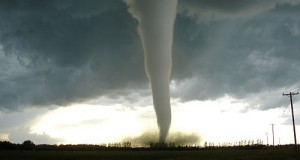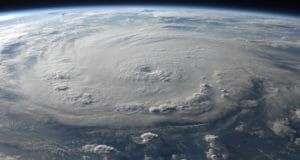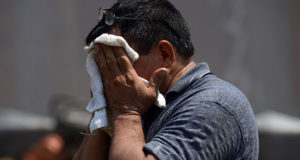Preparing your family for disastrous times can be a somewhat daunting task. There are so many factors to consider when it comes to properly preparing for critical times. Although overwhelming, it is the responsibility of every household head to make sure their family survives. It doesn’t have to be World War III that causes your life to descend into chaos. It could be something as simple as a long-term power failure or water shortage, which robs you of your basic everyday needs. The key to survival is proper advanced preparation for you and your family.
If you are a single person reading this article, read it anyway and learn from it because you may be able to educate your friends about how to prepare their entire family to survive through disastrous times. This article will discuss what you need to do in order to properly prepare your family.
Recognize Threats
This is the tricky part for anyone who doesn’t see the world or the events that happen in the world as a threat to them or their family. In other words, if you are one of the people who don’t believe that a tornado outbreak will affect you since you live in an area not prone to tornadoes, then you are a prime candidate to suffer greatly during a sudden and unexpected disaster. What kind of threats should every family recognize and prepare for? Let’s talk about a few common and some not-so-common threats.
Tornadoes
Tornadoes are known to strike suddenly and with little warning at all. Technology however, when coupled with competent meteorologists, can help increase the advanced warning times tremendously. Tornadoes are devastating because of their suddenness. They drop from the clouds, destroy everything in their paths, and leave the surviving victims to pick up the pieces. If you have ever experienced a tornado, you know exactly how it makes you feel. But what if you aren’t? Should you still prepare? The residents of Springfield, Massachusetts, were shocked that one summer afternoon in June 2011, when suddenly a severe thunderstorm spawned off a tornado that wrecked havoc on the city. To make a bad situation worse, it happened during rush hour and when the kids were being let out of school.
New Relocation Manual Helps Average Americans Get Out Of Harms Way Before The Coming Crisis
Can you imagine the shock and horror on the faces of many commuters as the tornado tore across the Connecticut River and destroyed buildings downtown? What would you have done if you were one of those people? Many of them had never even experienced a tornado because tornadoes are not common for the northeast.
Earthquakes
Earthquakes are also natural occurrences that result in disaster, especially in an overpopulated place. What is worse is that earthquakes happen without notice and suddenly turn the lives of individuals and families upside down. An example of this is the January 2010 Earthquake in Haiti, which claimed hundreds of thousands of lives. Those living in earthquake-prone areas are usually prepared by their state and local authorities. But even if you do not live in an area prone to earthquakes, it’s a good idea to have a plan… just in case.
Hurricanes
Hurricanes are destructive forces of nature that cause widespread damage and chaos. Although hurricanes are widely destructive, a person and his family are usually given days’ advanced notice of the hurricane’s projected path. In the recent years, hurricanes have been claiming more lives and causing billions of dollars in damage. Hurricane Katrina was the world’s most talked-about hurricane until Hurricane Sandy reared her head in 2012. Hurricane Sandy pummeled the East Coast of the United States, leaving millions without power for weeks. Although they had advanced notice, many survivors suffered without power and water long in the aftermath of Sandy.
Fires
Wild fires and local fires are not as common, but they do happen! California has suffered its fair share of wildfires. What would you and your family do if a fire suddenly sparked near your home and you were called to evacuate? Would you be already prepared? Or would you be scrambling to gather the necessities in order to flee?
Power Outage
Many people do not think of power outages when it comes to disaster preparation. Power outages are one of the most common causes of human suffering during a disaster or crisis situation. When the lights go out, many things began to happen. For instance, all electronics stop working. A lot of people today have telephone service through their cable company. Once the power goes out, there isn’t going to be any calling for help! “I still have my cell phone,” you might say. Yes you do, but once the battery drains, you won’t be able to charge it. The refrigerator will cease to stop working, causing all the food inside to spoil within hours. During a widespread power outage, a family could expect to go hours, if not days without electric service. Will you be ready for this?
Harness the power of the sun for your energy needs…
Making a Plan and Preparing
Okay here is the fun part—making a plan. Making a plan for your entire family will be exhausting, stressful, and sobering, but it is well worth the effort when you think of the benefits of having a well-prepared family. Lives will be saved—the lives of those whom you are entrusted with saving! What better reason to take the lead in making sure your family is rightly and well-equipped for survival? There will be those who balk at your efforts, but don’t pay them any attention. Why they are laughing and criticizing your efforts, their families stand openly exposed and disposed to disaster! You will be prepared and so will your family.
What to Prepare
When you think of what to prepare, start out with a blank sheet of paper. Make at least four columns, (you can always expand this later), and label each column with Food, Water, Clothing, and Medicine. That is where you start. Those are the four basics you will need to start preparing and stocking in your home.
Involve the Entire Family
When planning and preparing for a disaster, it’s best to include the entire family into the process. Why? Simply because securing the lives and the survival of your family is your utmost responsibility and should be highest on your priority list. If you are a family head, with a wife and four children, you must think of each one, taking their needs and thoughts and feelings into consideration. Younger children tend to “freak out” more during a disaster situation. Think of the last time there was a severe thunderstorm that struck your area. Most kids will be terrified of the thunder, lightening, and wind. Once the lights go out, which usually happens during a severe storm, their anxiety and fright level intensify. Therefore, preparations for disaster situations might need to include some sort of comfort item—a favorite toy or book, perhaps. Do you have a strong-willed child who tends to be a leader? Involve him or her in the process by delegating certain tasks to handle if and when a disaster happens.
Taking all aspects into consideration is imperative to properly preparing your family. Making sure they know and believe that disaster and crisis can strike your family is important. Every member has to be convinced in order for everyone to handle his or her tasks properly. This is not an easy task. There are many attitudes in the world that speak against disaster preparation. Do not allow this to deter you or your family.
Regardless of how you may view it, as a family head, it is your sole responsibility to make sure your family’s lives are preserved through a worldwide disaster or crisis situation. Knowledge is the best weapon of choice. Preparing a family will take time, energy, and a lot of forethought in order to successfully execute your plan. But it is well worth the effort. Your family will thank you when crisis times arrive (and they will) and you have already prepared for it. They will not be among the throngs running about without a clue of their next step. Ironically, during a widespread disaster, you may be able to feel at ease, knowing your family is safe.
 Off The Grid News Better Ideas For Off The Grid Living
Off The Grid News Better Ideas For Off The Grid Living





